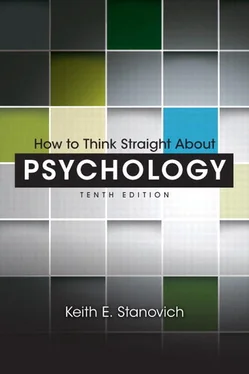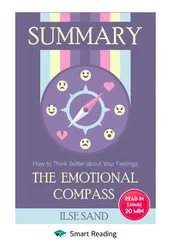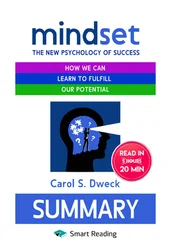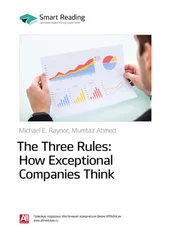How to Think Straight
About Psychology
TENTH EDITION
Keith E. Stanovich
University of Toronto

Boston Columbus Indianapolis New York San Francisco Upper Saddle River Amsterdam Cape Town Dubai London Madrid Milan Munich Paris Montréal Toronto Delhi Mexico City São Paulo Sydney Hong Kong Seoul Singapore Taipei Tokyo
Editorial Director:Craig Campanella
Editor in Chief:Jessica Mosher
Executive Editor:Stephen Frail
Editorial Assistant:Crystal McCarthy
Director of Marketing:Brandy Dawson
Managing Editor:Denise Forlow
Production Project Manager:Maria Piper
Senior Operations Supervisor:Mary Fischer
Operations Specialist:Diane Peirano
Art Director, Cover:Janye Conte
Cover Designer:Suzanne Duda
Cover Art:Shutterstock
Senior Digital Media Editor:Peter Sabatini
Full-Service Project Management:Integra Software Services, Pvt. Ltd.
Composition:Integra Software Services, Pvt. Ltd.
Printer/Binder:STP/RRD/ Harrisonburg
Cover Printer:STP/RRD/ Harrisonburg
Credits and acknowledgments borrowed from other sources and reproduced, with permission, in this textbook appear on the appropriate page within text [or on page 229].
Copyright © 2013, 2010, 2007 Pearson Education, Inc.All rights reserved. Manufactured in the United States of America. This publication is protected by Copyright, and permission should be obtained from the publisher prior to any prohibited reproduction, storage in a retrieval system, or transmission in any form or by any means, electronic, mechanical, photocopying, recording, or likewise. To obtain permission(s) to use material from this work, please submit a written request to Pearson Education, Inc., Permissions Department, One Lake Street, Upper Saddle River, New Jersey 07458, or you may fax your request to 201-236-3290.
Many of the designations by manufacturers and sellers to distinguish their products are claimed as trademarks. Where those designations appear in this book, and the publisher was aware of a trademark claim, the designations have been printed in initial caps or all caps.
Library of Congress Cataloging-in-Publication Data
Stanovich, Keith E.
How to think straight about psychology/Keith E. Stanovich.—10th ed.
p. cm.
Includes bibliographical references and index.
ISBN-13: 978-0-205-91412-8 (alk. paper)
ISBN-10: 0-205-91412-8 (alk. paper)
1. Psychology—Research—Methodology. 2. Mass media—Psychological aspects. 3. Mass media—Objectivity. I. Title.
BF76.5.S68 2013
150.72—dc23
2012027520
10 9 8 7 6 5 4 3 2 1

Student Version:
ISBN 10: 0-205-91412-8
ISBN-13: 978-0-205-91412-8
To Paula, who taught me how to think straight about life
The tenth edition of How to Think Straight About Psychology has no major structural revisions because a chapter reorganization occurred in a previous edition. The content and order of the chapters remain the same. At the request of reviewers and users, this edition remains at the same length as the ninth edition. Readers and users have not wanted the book to lengthen and, indeed, it has not. I have continued to update and revise the examples that are used in the book (while keeping those that are reader favorites). Some dated examples have been replaced with more contemporary studies and issues. I have made a major effort to use contemporary citations that are relevant to the various concepts and experimental effects that are mentioned. A large number of new citations appear in this edition (172 new citations, to be exact!), so that the reader continues to have up-to-date references on all of the examples and concepts.
The goal of the book remains what it always was—to present a short introduction to the critical thinking skills that will help the student to better understand the subject matter of psychology. During the past decade and a half there has been an increased emphasis on the teaching of critical thinking in universities (Abrami et al., 2008; Sternberg, Roediger, & Halpern,
2006). Indeed, some state university systems have instituted curricular changes mandating an emphasis on critical thinking skills. At the same time, however, other educational scholars were arguing that critical thinking skills should not be isolated from specific factual content. How to Think Straight About Psychology combines these two trends. It is designed to provide the instructor with the opportunity to teach critical thinking within the rich content of modern psychology.
Readers are encouraged to send me comments at: keith.stanovich@ utoronto.ca.
There exists a body of knowledge that is unknown to most people. This information concerns human behavior and consciousness in their various forms. It can be used to explain, predict, and control human actions. Those who have access to this knowledge use it to gain an understanding of other human beings. They have a more complete and accurate conception of what determines the behavior and thoughts of other individuals than do those who do not have this knowledge. Surprisingly enough, this unknown body of knowledge is the discipline of psychology. What can I possibly mean when I say that the discipline of psychology is unknown? Surely, you may be thinking, this statement was not meant to be taken literally. Bookstores contain large sections full of titles dealing with psychology. Television and radio talk shows regularly feature psychological topics. Magazine articles quote people called psychologists talking about a variety of topics. Nevertheless, there is an important sense in which the field of psychology is unknown. Despite much seeming media attention, the discipline of psychology remains for the most part hidden from the public. The transfer of “psychological” knowledge that is taking place via the media is largely an illusion. Few people are aware that the majority of the books they see in the psychology sections of many bookstores are written by individuals with absolutely no standing in the psychological community. Few are aware that many of the people to whom television applies the label psychologist would not be considered so by the American Psychological Association or the Association for Psychological Science. Few are aware that many of the most visible psychological “experts” have contributed no information to the fund of knowledge in the discipline of psychology. The flurry of media attention paid to “psychological” topics has done more than simply present inaccurate information. It has also obscured the very real and growing knowledge base in the field of psychology. The general public is unsure about what is and is not psychology and is unable to independently evaluate claims about human behavior. Adding to the problem is the fact that many people have a vested interest in a public that is either without evaluative skills or that believes there is no way to evaluate psychological claims. The latter view, sometimes called the “anything goes” attitude, is one of the fallacies discussed in this book, and it is particularly costly to the public. Many pseudosciences are multimillion-dollar industries that depend on the lack of public awareness that claims about human behavior can be tested. The general public is also unaware that many of the claims made by these pseudosciences (e.g., astrology, psychic surgery, speed reading, biorhythms, therapeutic touch, subliminal self-help tapes, facilitated communication, and psychic detectives) have been tested and proved false. The existence of the pseudoscience industry, which is discussed in this book, increases the media’s tendency toward sensationalistic reporting of science. This tendency is worse in psychology than in other sciences, and understanding the reasons why this is so is an important part of learning how to think straight about psychology.
Читать дальше













